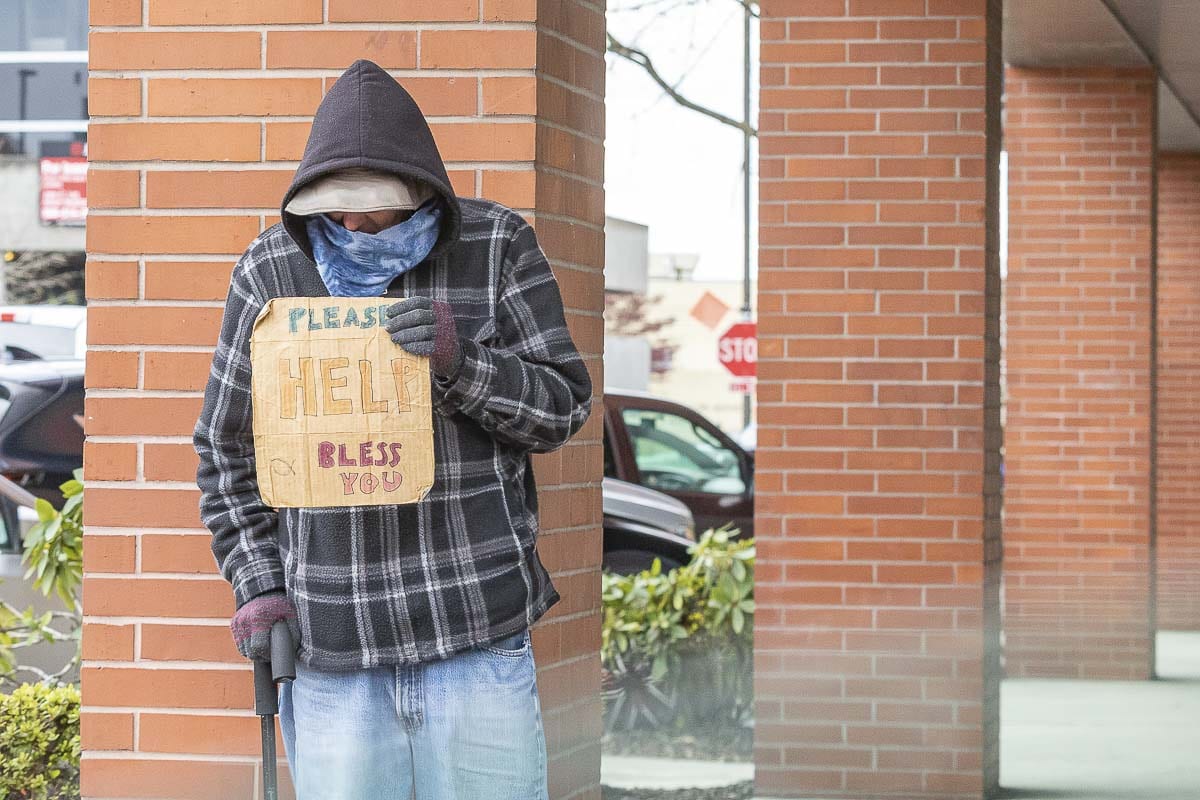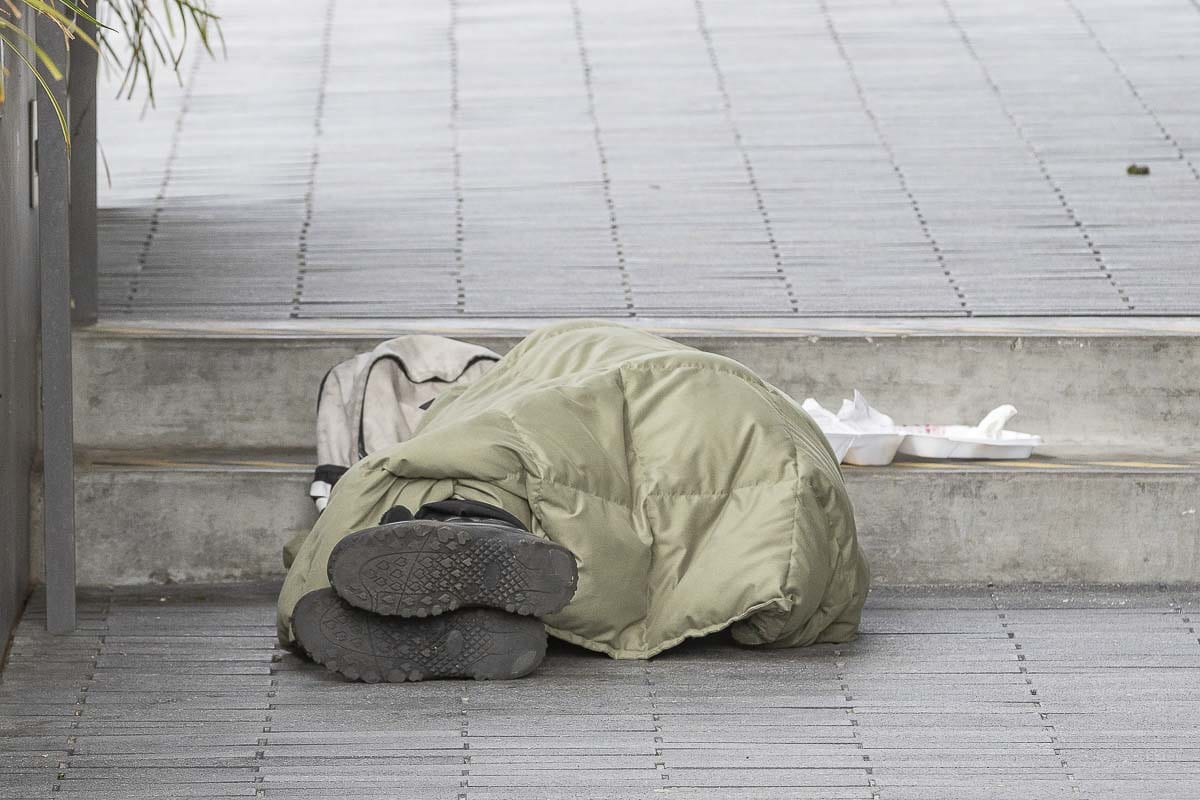No deaths, and few confirmed cases amongst the area’s estimated 500 people experiencing homelessness
CLARK COUNTY — When COVID-19 first emerged in Clark County back on March 6, emergency officials scrambled to figure out how to respond.
One of their primary concerns: the area’s homeless population. While many of the area’s estimated 500 homeless individuals live relatively isolated lives, hundreds frequent area shelters or nonprofits on a daily basis.

Those kinds of congregate settings, it was thought, could easily lead to an outbreak of COVID-19 in the local homeless population, many of whom already have underlying health conditions that could put them at risk from the virus.
In order to get ahead of the potential problem, Clark County Public Health and The Vancouver Clinic began doing testing of people at area homeless shelters.
It is, perhaps, surprising that of 145 tests conducted as of Aug. 6, not a single one came back positive for COVID-19, and none of the county’s 45 deaths blamed on the virus were homeless.
Kate Budd, executive director with Council for the Homeless, says the numbers are encouraging, but not entirely surprising.
“I say that because folks who are experiencing homelessness are not necessarily as mobile as the general public,” Budd says. “There are many people who might get into their car and go to Portland, and visit five different places in Portland and then go home.”
By contrast, most who are experiencing homelessness have a routine, and interact with the same groups of people each day in a sort of “family of choice,” says Budd.
“I think that, if there were some type of an outbreak, it would move through the populations relatively quickly,” she adds. “And that’s one of the reasons that the county has a quarantine and isolation motel.”
Last April, the county approved over $608,000 to secure rooms at an East Vancouver Motel 6, which could be used to isolate homeless people if they tested positive. That contract was initially expected to last through June, but has been extended.

While it hasn’t hosted many people needing to quarantine due to COVID-19, it has kept approximately 80 people off of the streets for the past four months.
“And that’s been great,” says Budd. “It’s basically over 80 people who otherwise might be living on the streets, and all of them are at high risk of COVID-19. This places them in a much more safe situation.”
Another factor, says Budd, has been the expansion of services to assist the homeless, allowing them to spread out further.
Even with the closure of the Navigation Center due to concerns about COVID-19, the city worked to keep restrooms open at city buildings. Vancouver also partnered with Living Hope Church to create a designated tent area, as well as expanding Safe Park options for people living out of their vehicles.
The city and C-TRAN also turned part of the Evergreen Park and Ride parking lot into another Safe Park space after Vancouver Mall reopened.
St. Andrews Church also kept their winter shelter open through June to assist during the peak of the pandemic.
“Which was quite a feat knowing that it was done just through paid staff, rather than the usual volunteers,” said Budd.
The county and the city of Vancouver also have expanded their motel voucher program, which is being funded largely through the CARES Act dollars coming to local governments for COVID-19 response.
“All of these new resources really are because of concerns that exist due to COVID,” says Budd, “and wanting to give people a place to be so that they can isolate and not just have to roam around town and feel unsafe themselves, and be at the risk of others that may be within their space.”
Area homeless shelters have also stepped up procedures, requiring health screenings and working with Public Health to test anyone who may be exhibiting symptoms. In those cases, the Motel 6 is generally used for the person who is waiting for test results, says Budd.
“And that’s been a positive protocol as well,” she adds. “They’re not being returned to that congregate setting until there’s a test result back.”

Shelters are also providing masks, hand sanitizer, bottled water and soap to the homeless in order to allow them to feel protected when they’re around others.
One ongoing challenge has been finding enough volunteers to do the work. Nonprofits including Share, FISH, and St. Vincent de Paul are seeking more help, both because of expanded programs during the pandemic, or other volunteers stepping down due to a health condition that puts them or a family member at high risk from COVID-19.
You can find out more about how Clark County and Council for the Homeless are addressing homelessness during the pandemic by clicking here.




